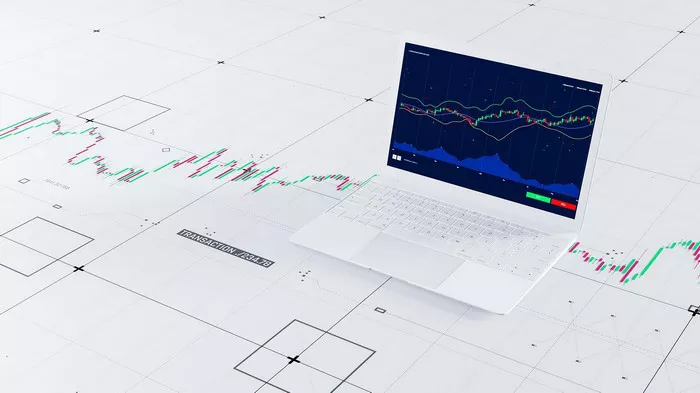Investors are always looking for ways to grow their portfolios, and one common question is: When will international stocks outperform? While domestic markets are often the focus of individual investors, international stocks can present valuable opportunities for diversification and higher returns. However, the performance of international stocks depends on a variety of factors, making it essential to understand the circumstances under which these stocks are likely to outperform.
In this article, we will explore the key elements that influence the performance of international stocks, why they may outperform domestic stocks, and how investors can strategically position themselves to benefit from global market trends.
What Are International Stocks?
Before diving into the topic of international stock performance, it’s important to understand what we mean by international stocks. International stocks refer to shares of companies based outside your home country. These can be grouped into:
Developed Markets: Countries with established economies, such as those in Europe, Japan, and Australia.
Emerging Markets: Countries with developing economies, like China, Brazil, and India.
Frontier Markets: Economies that are less developed than emerging markets but are growing rapidly, such as Vietnam or Nigeria.
International stocks can be bought through exchange-traded funds (ETFs), mutual funds, or directly by purchasing shares in foreign companies. However, investing in international stocks comes with additional risks and complexities compared to investing in domestic stocks. These include currency risk, geopolitical risk, and economic instability.
The Case for International Stocks
Over the long term, international stocks have the potential to outperform domestic stocks under certain conditions. These conditions generally revolve around economic growth, valuation differentials, and the relative performance of domestic and global markets. Let’s break down the factors that influence when international stocks may outperform.
Economic Growth in Other Countries
One of the most significant reasons international stocks may outperform domestic stocks is when economic growth in other countries outpaces that of your home country.
Emerging Markets and Growth Potential
Emerging markets are often considered the high-growth segment of the international stock universe. Countries like China, India, and Brazil have large, young populations, growing middle classes, and rapidly expanding industries. These markets are often less mature than developed markets, but they can experience high levels of economic expansion, especially in sectors like technology, infrastructure, and consumer goods.
For instance, in the early 2000s, Chinese and Indian stocks performed exceptionally well due to the rapid industrialization and urbanization of their economies. If these markets continue to grow at a faster rate than developed countries, international stocks from these regions could outperform.
Developed Markets and Economic Cycles
Developed markets, like those in the U.S., Europe, and Japan, may experience periods of slower growth. However, they can also benefit from periods of stability, innovation, and strong governance. For example, European markets may outperform U.S. stocks if the European Central Bank enacts policies that stimulate growth or if the Euro strengthens against the U.S. dollar.
The performance of international stocks in developed markets often depends on the specific economic conditions of each country. When European nations experience higher growth rates or stronger corporate earnings compared to the U.S., international stocks from these countries could outperform domestic stocks.
Currency Fluctuations and Foreign Exchange
Another factor that can drive the outperformance of international stocks is currency fluctuations. When you invest in international stocks, your returns are affected not only by the performance of the companies but also by changes in the value of foreign currencies relative to your home currency.
Strength of Foreign Currencies
If the currency of a foreign market strengthens against the investor’s home currency, the return on international stocks may be amplified. For example, if you invest in European stocks and the Euro appreciates against the U.S. dollar, your returns from European stocks will be enhanced in dollar terms.
On the other hand, if the currency of the country in which you invest weakens, it can reduce the return on international stocks. For instance, if the Japanese yen depreciates against the U.S. dollar, U.S. investors holding Japanese stocks might see their returns diminish, even if the Japanese companies themselves perform well.
Valuation Differentials
Valuation is another critical factor that can lead to international stocks outperforming. Global equity markets do not always trade at the same valuation multiples. In times when U.S. stocks are trading at high price-to-earnings (P/E) ratios, international stocks may be undervalued relative to their potential.
Low Valuations in International Markets
There are periods when international stocks, especially those in emerging markets, trade at a discount to their fair value compared to U.S. stocks. These valuations often arise when investors have a negative view of a region or market, or when there are fears about global economic conditions.
For example, during periods of global economic uncertainty or political instability, emerging market stocks might underperform. However, when the risks associated with these markets subside, international stocks can see substantial price appreciation, particularly when the valuation gap narrows.
Rotation from Domestic to International Stocks
Investment flows also play a role in the performance of international stocks. When domestic stocks, particularly in developed markets, become overvalued, investors may look to international stocks for better opportunities. This rotation can drive demand for international stocks, pushing their prices higher. Conversely, when domestic stocks are undervalued or growing rapidly, international stocks may lag.
When Will International Stocks Outperform?
Several specific scenarios may increase the likelihood that international stocks will outperform domestic stocks.
1. Global Economic Recovery
After a period of economic downturn, such as a recession or global financial crisis, international stocks can perform exceptionally well as economies recover. For example, after the 2008 financial crisis, many emerging markets experienced strong recoveries while developed markets struggled with slower growth.
2. Favorable Government Policies
Governments in international markets, particularly emerging markets, may implement policies that foster economic growth. These policies can include infrastructure spending, tax cuts, or reforms that encourage foreign investment. If these measures are successful, stocks in those regions can outperform those in more mature markets.
3. Diverging Growth Rates Between Countries
Periods when growth rates diverge significantly between countries can also favor international stocks. If, for example, the U.S. economy is sluggish while China or India experiences rapid growth, international stocks from those regions could outperform.
4. U.S. Dollar Weakness
A weaker U.S. dollar can be a significant driver for international stocks to outperform. When the U.S. dollar depreciates, international investments become cheaper for U.S. investors. This typically results in a rise in demand for international stocks, which can lead to higher performance.
5. Global Trade Expansion
International stocks can benefit from global trade and increased connectivity between markets. If global trade flows increase, especially between emerging markets and developed economies, international companies that are part of the supply chain could see higher revenues and profits, which would translate to outperformance in their stock prices.
6. Technological Advancements and Innovation
Technological innovation is not limited to developed countries. Many emerging markets are rapidly adopting new technologies, especially in sectors like fintech, mobile payments, and e-commerce. International stocks that participate in these innovations may outperform those in more saturated domestic markets.
Risks to Consider When Investing in International Stocks
While international stocks have the potential to outperform, they also come with risks. It’s important to understand these risks before allocating funds to international equities.
Currency Risk
As mentioned earlier, currency fluctuations can affect the returns on international stocks. If the foreign currency weakens relative to your home currency, it can reduce the overall return on your investment, even if the stock itself performs well.
Political Risk
Investing in international stocks, particularly in emerging markets, can expose investors to political risk. Changes in government, policy uncertainty, or civil unrest can significantly affect the performance of stocks in certain countries.
Economic Risk
International stocks are also subject to the economic conditions in the countries where they are based. Economic downturns, inflation, or high levels of debt can negatively impact corporate earnings and stock prices.
Regulatory and Legal Risks
Different countries have different regulatory and legal frameworks that can affect businesses. In some cases, international companies may face more stringent regulations or face difficulties with intellectual property rights, corruption, or enforcement of contracts.
How to Invest in International Stocks
Investing in international stocks can be done through several methods:
1. Exchange-Traded Funds (ETFs)
ETFs are one of the easiest ways to gain exposure to international markets. There are ETFs that track major international indices, such as the MSCI Emerging Markets Index or the FTSE All-World Index. These ETFs provide diversified exposure to international stocks, reducing the risk of individual stock investments.
2. Mutual Funds
Mutual funds are another option for investing in international stocks. Actively managed international mutual funds can provide more selective exposure to specific regions or countries.
3. Direct Stock Investments
For investors with a higher risk tolerance and more experience, buying stocks directly in foreign companies can provide exposure to international markets. However, this requires more research and understanding of the specific markets involved.
Conclusion
International stocks have the potential to outperform domestic stocks in certain conditions, such as during periods of global economic recovery, favorable government policies, or when there is currency depreciation. Emerging markets, in particular, present substantial growth opportunities, although they come with additional risks like political and economic instability.
Investors should monitor key factors such as currency fluctuations, economic growth rates, and valuations to assess when international stocks are likely to outperform. Diversifying your portfolio to include international stocks can be an effective way to benefit from global growth trends and reduce risk exposure.
Understanding the specific risks involved in international investing and having a strategy for diversification and risk management will help you make informed decisions and position yourself to benefit from potential outperformance in international markets.
Related topics:
































